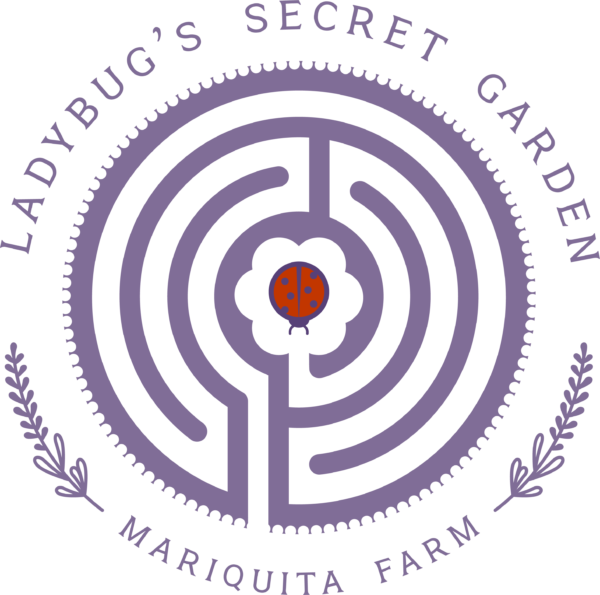Chickweed on China
“The earth brought forth vegetation, plants yielding seed, and fruit trees bearing fruit in which is their seed, each according to its kind. And God saw that it was good.”-”Genesis 1:12
“What is a Weed? A plant whose Virtues have not yet been discovered.”
-Ralph Waldo Emerson-
You can take the mouse out of the country, but you can’t take the country out of the mouse—which must be one reason I like Erica, because I’m a country mouse too. Erica Holland-Toll is the Executive Sous Chef at the Americano Restaurant in the Hotel Vitale, on San Francisco’s waterfront, right across the Embarcadero from the Ferry Plaza Farmers Market, where we sell our vegetables every Saturday. Some Saturdays Erica passes by our stall to buy vegetables, sometimes she stops by to say hello, and sometimes she comes looking for information. One day she came asking after chickweed. Did I know what it was? Did I have any?
Every farmer knows about chickweed – ”it must be one of the most successful weeds in the whole world. Chickweed started out in Eurasia, but it’s now found on every continent, even Antarctica. Chickweed can tolerate all kinds of environmental conditions, but it thrives in moist, nitrogen-rich soil, so it’s a common garden weed. Even in shade chickweed can sprawl into a lush mat that competes with the “legitimate” vegetables. I’ve read that a single chickweed plant can produce over 15,000 seeds, and that those seeds can remain viable in the soil for years. Just to make the odds on survival even better, chickweed propagates itself vegetatively too, by sending roots out from recumbent stems. “What do you want chickweed for?” I asked.
“Salads,” she answered.
I had to smile at that. Sure, I know chickweed is edible, in a green, herbaceous, weedy kind of way. Chickweed stems are slender and slightly crunchy to the tooth. The leaves are small, ovate, succulent, and mild flavored, with a soft texture. The plant often sports tiny, white, starry flowers, hence its scientific name Stellaria media, from the Latin stella, for star. ( I’ve read that a chickweed seedling can flower and set seed only five weeks after germination. Under snow!) But chickweed is humble salad compared to a “real” salad green like butter leaf lettuce, and the Americano is a sophisticated restaurant with a glossy, modern take on traditional Italian cuisine.
The Americano also has a very popular bar. Walk down the Embarcadero on any evening you’ll see mobs of dressy, fashionable patrons spilling out the Americanoâ’s doors onto their patio. I couldn’t see the women, having just descended from the office towers, wanting to subdue a tangled chickweed salad as they maneuver through the crowd atop high heels, and I couldn’t see the flatfooted men bothering about chickweed when there are so many women to pay attention to.
“Yes,” Erica said, “the bar is popular.” But she reminded me that the popularity of the bar with drinkers is one reason that her boss, Chef Paul Arenstam, can afford to be committed to purchasing the finest, seasonal ingredients from local farmers. That’s another reason I like Erica. She could flaunt a big attitude, like you always hear that gourmet chefs have, and she could whine that the Americano’s bar steals the attention from the kitchen, but instead she works quietly backstage to make sure diners get a memorable meal. And I’m sure that any chickweed salad Erica makes will be memorable. It could even be that chickweed’s little green stems tickle ancestral memories deep inside us. It tickles me to think that to enjoy the sort of wild salad that a shepherd, a goat, or a sheep might nibble at it’s necessary to go to a soignee joint like Americano.
Chickweed may grow everywhere, but it’s a free spirit— its very tenderness makes for its strongest defense against any attempts by commercial agriculture capture, brand, and warp it into a commodity. Chickweed can survive temperatures well below freezing, but the plants would be bruised in the icy rain of a big farm’s hydro-cooler. Chickweed’s lax stems allow it to sprawl and mat across a garden or a meadow, but its slender stems would be smashed if a worker tried to wrap a wire twist tie around them to make a retail-friendly bunch. Chickweed can be enjoyed as a salad green but it needs to be handled with care. Care is precisely the last virtue that a mass market, commodity driven economy wants to encourage.
Spring mix salad greens makes for more suitable 21st century greens than chickweed, because the harvest and handling of baby lettuces can be mechanized. But, as we’ve seen with the repeated E. coli scandals, even machines can’t solve every problem that mass marketing poses. Manufactured products like toilet paper meet the needs of today-s retail environment more perfectly than fresh vegetables can – ”everybody needs toilet paper all the time, and it can be stored indefinitely in inventory without rotting. Toilet paper comes in a variety of consumer friendly “decorator colors” too, appealing to the eye, and the product is immune to consumer complaints about flavor. Plus, the plastic film the toilet paper rolls come wrapped in provides a perfect platform for advertising “information,” from the brawny image of a he-man to the coo-worthy face of a baby. Best of all, toilet paper can be scented, so as to distract us from the more graphic details of our own existence. From a mass marketing perspective toilet paper is golden, and chickweed is – well, chickweed is shit.
I asked Erica what prompted her to think of chickweed, and she told me that when she was a girl, growing up in the Sierra Nevada Mountains she and her friends would wander through the woods and meadows and gather things to eat. She would try anything, she said, from blackberries, chickweed and miners lettuce, to less obviously delicious fare like manzanita berries. Once Erica made herself sick eating the berries off of an oleander bush in someone’s yard. Her parents could tell her “No!” but they couldn’t stop her, so they kept the number for poison control prominently posted by their telephone..
What Erica didn’t know was that even chickweed is toxic if you eat enough of it. Chickweed has a natural chemical in it called saponin, a steroid alkaloid. Lest Erica’s employers become concerned that she wants to serve a chickweed salad, let me remind them that other foods, like asparagus, wine and olives also have saponins- it’s all about partaking with moderation. Chickweed is also medicinal. It is listed as having anti-cancer, anti-inflammatory, and anti-oxident properties. If more farmers picked chickweed for their local restaurants instead of spraying their fields with herbicides to kill it we might not need so many anti-cancer drugs.
I’m happy Erica survived the edible experiments of her childhood. Seeing Erica at the farmers market, happy and smiling in her chef’s whites, I can see her as a girl, arranging impromptu, woodsy salads on skunk cabbage leaves, the Sierra Nevada Mountains around her as her imaginary restaurant with blue skies, the green meadow at her feet transformed into a white tablecloth, and her friends all grown up into sophisticated women out for a night on the boulevard.
I’m a lot older than Erica, and I’m glad I got to meet her when I was all grown up. If we’d both been kids in the same hills I’d have liked her, and I’m sure I’d have been an oaf about expressing it. I knew chickweed, and miners lettuce, and I gathered them, but that’s where any parallels between Erica and I go askew. I remember racing ahead of my sister, grabbing wads of miners lettuce and chewing it until my spit turned green. Then I staggered back drooling green foam and making gagging noises before falling down in a spasm. Anything for a reaction. I wasn’t ready for the patio bar at the Americano. After all my years there are still days I don’t shine like silver when I’m placed next to a white tablecloth.
Erica has balanced her country mouse roots with her inner town mouse. One thing is for sure – when you want to eat a shepherd’s salad sit down at Erica’s table, not mine. I have sheep, but I don’t have any chickweed, at least not growing among my crops. I have chickweed growing in my pastures, but it would be too expensive for me to forage it from among the grasses, even for Erica. I don’t want to contradict a sage like Emerson, but sometimes we can know a plant’s virtues, yet it remains a weed— it grows rank until the moment we can make money off it, then disappears. Every plant is virtuous in the right circumstances. Weeds are the virtuous plants that smile at us and the absurd limitations of our unholy economy. I don’t need herbicide. When Erica asks to buy chickweed the chickweed in my field dies of laughter.
0 thoughts on “Chickweed on China”
Leave a Reply
You must be logged in to post a comment.



Great piece. It certainly makes me want to visit Erica’s kitchen. It stirs the creative cook within me to look for new ways to use “old” foods. Could there be a market for sour grass too? That’s what I remember eating as a kid and some kind of purple berries (yikes) from a bush that seemed to grow in every one of my neighbors front yards. I guess these offbeat food choices could loosely qualify as “comfort food”. Andy, thanks for keeping us informed, entertained and enlightened about the food you grow and we are blessed to eat…..
A tech request from a non-tech person – I was trying to create an RSS syndicated feed using the button, but it was rejected due to the question mark in the line. Can the RSS information be changed to eliminate the query part?
Thanks – I will enjoy reading these in the future.